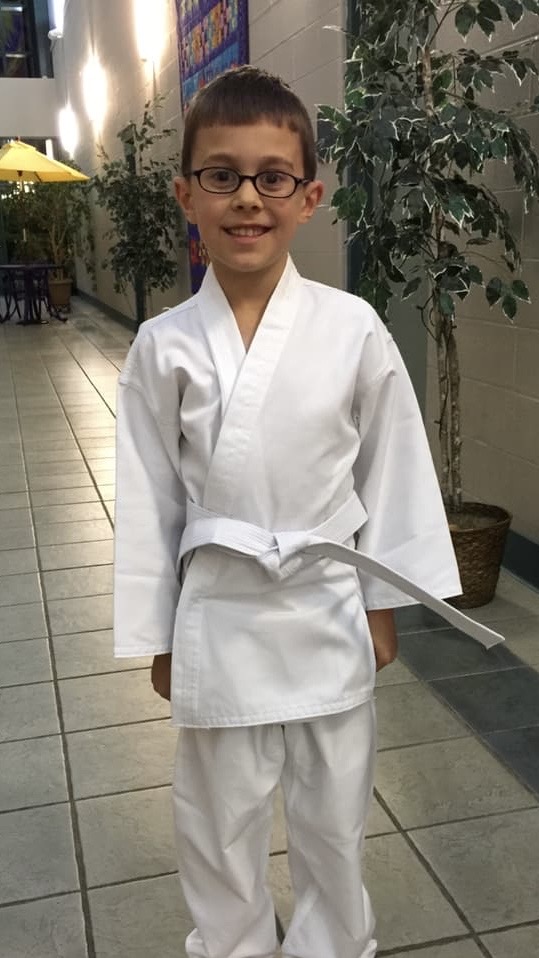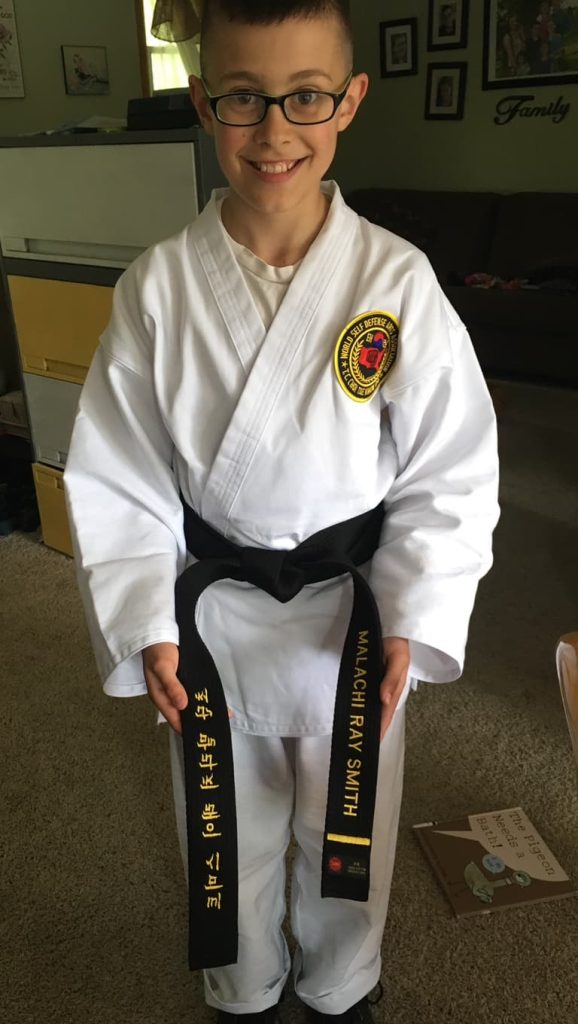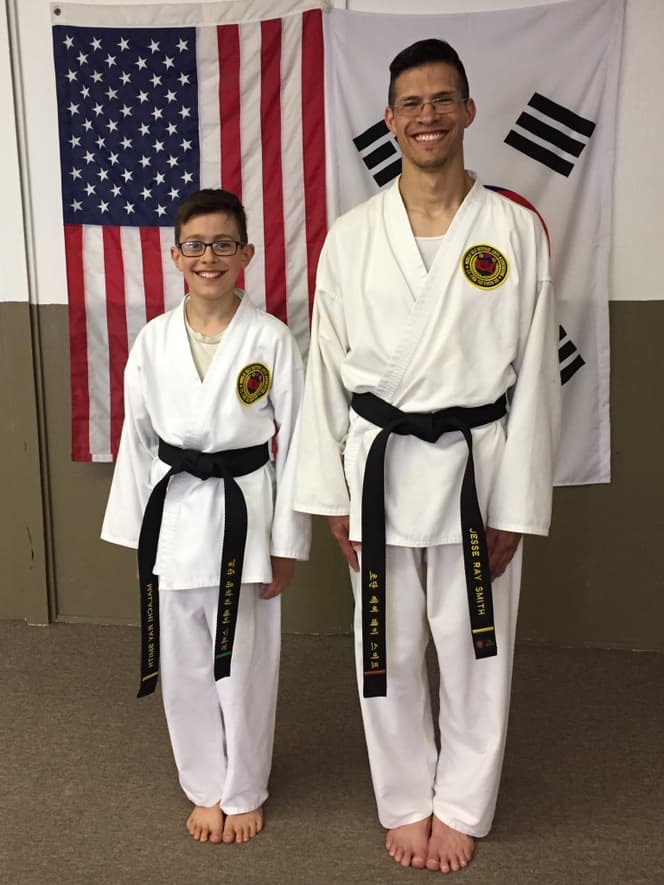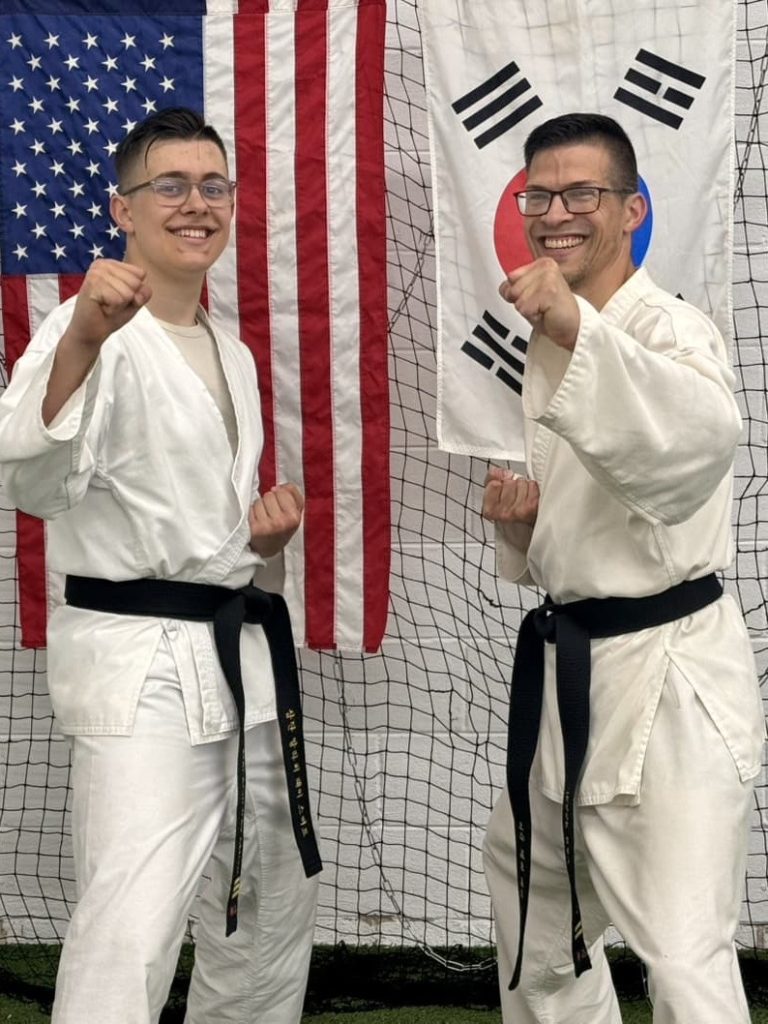Black Belt in Tae Kwon Do
In 2015, at the age of eight, I joined a Tae Kwon Do class with my dad. It was the first organized activity I’d ever been a part of, but the lessons about hard work and discipline I’d learned from my parents set me apart from the other students.
Although I had never been interested in martial arts as a kid, I thrived once put into class. The effort I put in propelled me past student after student; it wasn’t long before I was higher in rank than those who had taught me at the beginning. A little over two years after starting, I’d worked my way through twelve student ranks and passed the test for my black belt. Neither my dad nor I has quit since, and I am now on my third “dan” black belt, the seventh black belt rank since my first one.
The most important part of getting your black belt is that it means you are expected to have the ability to teach others what you know. Teaching is a hard skill that a lot of people do not possess, but Tae Kwon Do showed me how the words I say and the actions I do translate into a student understanding and learning what I’m trying to impart to them.
No two students learn the same way, so it was very important for me once I started reaching higher ranks to figure out how each individual learned best. Some needed simply to observe what I did, others understood my words quickly and easily, and still others needed slow, patient, and hands-on guidance for every move they made.


An interesting challenge for me back then was teaching adults, as I was used to being taught by those older than me, not instructing them. It was an interesting balance I had to strike: I both had to recognize my rank and knowledge and present myself as so, but also needed to respect the natural hierarchy of age and remain respectful.
My own skills as a martial artist have grown a great deal from teaching. Any good teacher will tell you that teaching someone else what you know is the best way to get a deeper understanding of yourself. I am more proficient with what I can do because I spent years pouring into other people.
Another teaching challenge I’ve done was that my dad and I led a year-long martial arts class for the elementary school students at the school where my dad works. It was a lot different from what I was used to, as the environment, mental capabilities, and group size each came with their problems that we had to solve. However, I’m very pleased with what we were able to do, and we both learned a lot.
Martial arts has had a great effect on how I act outside of the class as well. The respect for other people and my elders, as well as the great amount of mental and physical discipline, has most definitely improved my life. However, I would say that the confidence gained by knowing how to fight has had the greatest impact on me.
Kids often struggle with doubts about themselves and their self-worth. They often feel insecure about what they can do. I never struggled with that because Tae Kwon Do showed me what I could do through hard work and discipline. What others say can’t affect me because I know who I am. I surpassed others and gained prestige in my class, so I knew I could do it elsewhere with the same amount of work.
There’s also the physical aspect to the confidence: as a kid, I fought people up to three times my size, so I wasn’t scared at the small battles life could throw at me. Now, I know my strength and fighting capability, so there’s never any fear when I have to lead or face confrontation. No one can peer pressure or force me into something because my mind and body are stronger than theirs. This confidence is grounded in reality, backed by the blood and sweat I gave to achieve what I am today.
To sum it all up, Tae Kwon Do has taught me leadership, teaching skills, and whole-person discipline. Through the physical prowess I’ve earned, I’m fearless wherever I go because I’ve put in the work to figure out what I’m capable of doing.
I cannot recommend a high-quality martial arts class highly enough; the benefits are enormous for adults and kids alike.


